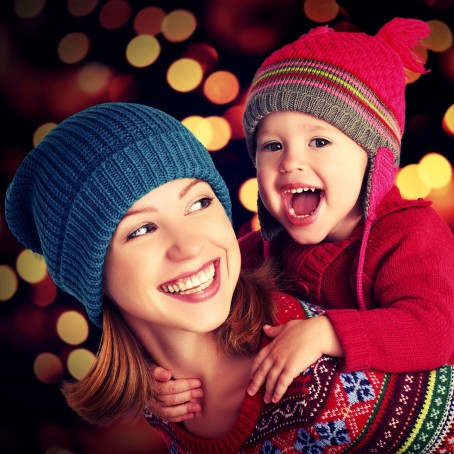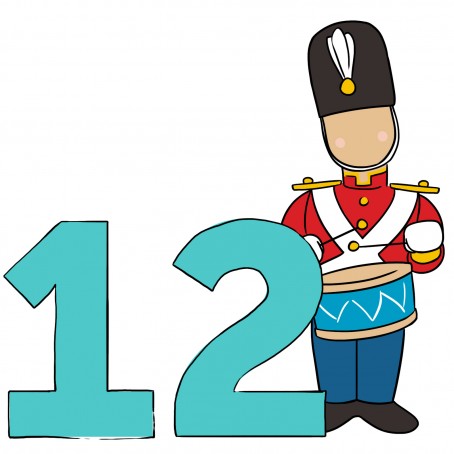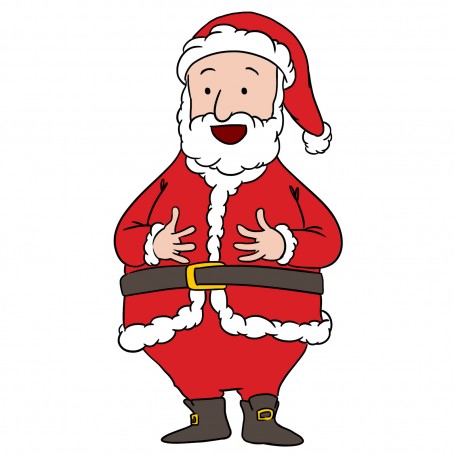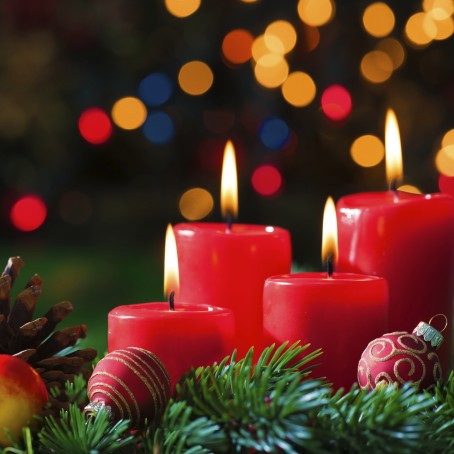Do you know any ways to wish someone a ‘Merry Christmas’ in Chinese? ChineseClass101 brings you easy-to-learn translations and the correct pronunciation of Chinese Christmas phrases!
Christmas is the annual commemorative festival of Christ’s birth in the Western Christian Church. It takes place on December 25th and is usually celebrated with much food and fanfare! However, not all cultures celebrate Christmas. In some countries, Christmas is not even a public holiday! However, many countries have adapted Christmas and its religious meaning to tally with their own beliefs, or simply in acknowledgment of the festival’s importance to other cultures. If you want to impress native Chinese speakers with culturally-appropriate Christmas phrases and vocabulary, ChineseClass101 will teach you the most important ways to wish someone a ‘Merry Christmas’ in Chinese!
Table of Contents
- How to Celebrate Christmas in China
- Holiday Greetings and Wishes
- Must-Know Christmas Day Vocabulary
- Twelve Days of Christmas
- Top 10 Christmas Characters
- How ChineseClass101 Can Help You
1. How to Celebrate Christmas in China
December 25 is Christmas, a traditional Western festival with religious origins. In recent years, Christmas has become a popularly celebrated holiday in China, too. Let’s go over the differences between Western and Chinese Christmas customs.
Now, before we get into more detail, do you know the answer to this question-
The Chinese have incorporated many customs of their own into Christmas celebrations, such as the “Christmas Fruit.” Do you know what this is?
If you don’t already know, you’ll find out a bit later. Keep reading.
Though Christmas is not an official public holiday in Mainland China, the Chinese have increasingly embraced the celebration of this holiday since the economic reform and opening-up policy, or 改革开放 (gǎigé kāifàng). It is, however, a public holiday in Macau, which took influence from the Portuguese. Similarly, Hong Kong also observes a three-day holiday for Christmas, spanning from December 24 to December 26.
Christmas celebrations in China have distinctly Chinese characteristics. Some of these customs are fascinating, while others may be confusing. In the West, Christmas is a time for family reunions, while in China, people more often go out in groups and see a movie, go to karaoke, or go shopping as a way to celebrate Christmas.
China’s economy is always at its best during Christmas time, as Christmas provides plenty of business opportunities, or 商机 (shāngjī), and big profits. Christmas Eve is the country’s biggest day for shopping and sales. Shops and restaurants all play along with the Christmas theme, adding to the Christmassy atmosphere. Many movies are shown at Christmas time, as the holiday is also seen as a day for romance.
In China, Santa Claus, or 圣诞老人 (Shèngdànlǎorén) is depicted differently than in the West. Most notably, the Chinese interpretation of Santa plays the saxophone, or sometimes alternatively the French horn, violin, or trumpet. This aspect of Santa’s image most likely started as a commercial campaign, but over time developed into a key aspect of his persona.
Now it’s time to answer our quiz question-
The Chinese have incorporated many customs of their own into Christmas celebrations, such as the “Christmas Fruit.” Do you know what this is?
The “Christmas Fruit” or 圣诞果 (Shèngdàn guǒ) is an apple, which is the most common Christmas gift in China. The apple was appointed as the Christmas fruit because in Chinese, the word for apple is a homophone of “Christmas Eve”. Christmas Eve is 圣诞夜 (Shèngdànyè), while “apple” is 圣诞果 (Shèngdàn guǒ). With the help of special packaging, common apples are turned into expensive gifts.
2. Holiday Greetings and Wishes for the Holiday Season
1- Merry Christmas!
圣诞节快乐!
Shèngdàn Jié kuàilè!
Do you know how to say ‘Merry Christmas’ in Chinese? Learn here how to pronounce it perfectly! ‘Merry’ means to be joyful, to celebrate and generally be in good spirits. So, with this phrase you are wishing someone a joyful, celebratory remembrance of Christ’s birth!
2- Happy Kwanzaa!
宽扎节快乐!
Kuān zhā jié kuàilè!
Surprise your African-American, or West African native friends with this phrase over the Christmas holidays! Kwanzaa is a seven-day, non-religious celebration, starting on Dec 26th each year. It has its roots in African American modern history, and many people celebrate both Kwanzaa and Christmas!
3- Have a happy New Year!
新年快乐!
Xīnnián kuàilè !
In countries where Christmas is not officially celebrated, but a Gregorian calendar is observed, this would be a friendly festive-season wish over New Year.
4- Happy Hanukkah!
光明节快乐!
guāngmíng jié kuàilè !
Hanukkah is the beautiful Hebrew festival over November or December each year. It is also called the ‘Festival of Lights’ and is celebrated to commemorate the Jewish freedom of religion.
5- Have a great winter vacation!
寒假快乐!
hánjià kuàilè !
This is a good phrase to keep handy if someone doesn’t observe any religious festival over the Christmas holidays! However, this will only be applicable in the Northern hemisphere, where it is winter over Christmas.
6- See you next year!
明年见!
Míngnián jiàn!
Going away on holiday over Christmas season, or saying goodbye to someone about to leave on vacation? This would be a good way to say goodbye to your friends and family.
7- Warm wishes!
致以温馨的祝福!
zhìyǐ wēnxīn de zhùfú!
An informal, friendly phrase to write in Chinese Christmas cards, especially for secular friends who prefer to observe Christmas celebrations without the religious symbolism. It conveys the warmth of friendship and friendly wishes associated with this time of year.
8- Happy holidays!
节日快乐!
Jiérì kuàilè!
If you forget how to say ‘Merry Christmas!’ in Chinese, this is a safe, generic phrase to use instead.
9- Enjoy the holidays!
好好享受假期!
hǎohao xiǎngshòu jiàqī !
After saying ‘Merry Christmas’ in Chinese, this would be a good phrase with which to wish Christmas holiday-goers well! It is also good to use for secular friends who don’t celebrate Christmas but take a holiday at this time of the year.
10- Best wishes for the New Year!
祝新的一年一切都好!
zhù xīn de yì nián yíqiè dōuhǎo !
This is another way of wishing someone well in the New Year if they observe a Gregorian calendar. New Year’s day would then fall on January 1st.
3. Must-Know Christmas Day Vocabulary
Christmas is associated with many traditions and religious symbols in multiple countries across the world. It originated centuries ago in the West with the birth of Christianity, and the celebrations are often embedded with rich cultural significance. So, by now you know how to say Merry Christmas in Chinese! Next, learn pertinent vocabulary and phrases pertaining to Christmas, as well as how to pronounce them correctly. At ChineseClass101, we make sure you sound like a native speaker!
1- Christmas
圣诞节
Shèngdàn Jié
This is the Chinese word for ‘Christmas’. Most happy Christmas wishes in Chinese will include this word!
2- Snow
雪花
xuěhuā
In most Northern-hemisphere countries, Christmas is synonymous with snow, and for Christmas, the snowman is often dressed as Santa Claus.
3- Snowflake
雪花
xuěhuā
Snowflakes collectively make up snow. A single snowflake is small, white, light like a feather and icy cold! When put under a microscope, the snowflake reveals itself to have the most beautiful, symmetrical patterns. These patterns have become popular Christmas decorations, especially in Western countries.
4- Snowman
雪人
xuěrén
As you guessed – a snowman is only possible to build if it is snowing! What a fun way to spend Christmas day outside.
5- Turkey
火雞
huǒjī
Roast turkey is the traditional main dish on thousands of lunch tables on Christmas day, mainly in Western countries. What is your favorite Christmas dish?
6- Wreath
花环
huāhuán
Another traditional Western decoration for Christmas, the wreath is an arrangement of flowers, leaves, or stems fastened in a ring. Many families like to hang a Christmas wreath outside on their houses’ front doors.
7- Reindeer
驯鹿
xúnlù
Reindeer are the animals commonly fabled to pull Santa Claus’ sled across the sky! Western Christmas folklore tells of Father Christmas or Santa Claus doing the rounds with his sled, carrying Christmas presents for children, and dropping them into houses through the chimney. But who is Santa Claus?
8- Santa Claus
圣诞老人
Shèngdàn Lǎorén
Santa Claus is a legendary and jolly figure originating in the Western Christian culture. He is known by many names, but is traditionally depicted as a rotund man wearing a red costume with a pointy hat, and sporting a long, snow-white beard!
9- Elf
精灵
jīnglíng
An elf is a supernatural creature of folklore with pointy ears, a dainty, humanoid body and a capricious nature. Elves are said to help Santa Claus distribute presents to children over Christmas!
10- Rudolph the Red-Nosed Reindeer
红鼻子驯鹿鲁道夫
hóngbízi xúnlù Lǔdàofū
‘Rudolph the Red-Nosed Reindeer’ is a Christmas song based on an American children’s story book with the same name. Rudolph is one of Santa’s reindeer. The song became more famous than the book, and can still be heard playing in many shopping malls over Christmas time across the globe!
11- North Pole
北极
Běi Jí
The cold North Pole is where Santa Claus is reputed to live with his reindeer!
12- Sled
雪橇
xuěqiāo
A sled is a non-motorised land vehicle used to travel over snow in countries where it snows a lot, and is usually pulled by animals such as horses, dogs or reindeer. This one obviously refers to Santa’s sled! Another word for sled is sleigh or sledge.
13- Present
礼物
lǐwù
Gift or present giving is synonymous with Christmas Eve and the greatest source of joy for children over this festive time! This tradition signifies that Christ’s birth was a gift to mankind, but not all people who hand out presents over Christmas observe the religious meaning.
14- Bell
铃
líng
On Christmas Day, or Christmas Eve, many religious celebrants enjoy going to church for a special sermon and Christmas rituals. The start of the sermon is often announced with bells or a bell, if the church has one. For this reason, the sound of ringing bells is often associated with Christmas Day.
15- Chimney
烟囱
yāncong
The chimney is the entrance Santa Claus uses to deliver children’s presents on Christmas Day, according to folklore! Wonder how the chubby man and his elves stay clean…?!
16- Fireplace
壁炉
bìlú
In most countries where it snows, Christmas is synonymous with a fire or burning embers in houses’ fireplaces. Families huddle around its warmth while opening Christmas presents. Also, this is where Santa Claus is reputed to pop out after his journey down the chimney!
17- Christmas Day
圣诞节
Shèngdàn Jié
This is the official day of commemorative celebration of Christ’s birth, and falls each year on December 25.
18- Decoration
装饰
zhuāngshì
Decorations are the colourful trinkets and posters that make their appearance in shops and homes during the Christmas holiday season in many countries! They give the places a celebratory atmosphere in anticipation of the big Christmas celebration. Typical Christmas decorations include colorful photographs and posters, strings of lights, figurines of Santa Claus and the nativity scene, poinsettia flowers, snowflakes and many more.
19- Stocking
长袜
chǎng wà
According to legend, Santa Claus places children’s presents in a red stocking hanging over the fireplace. This has also become a popular decoration, signifying Christmas.
20- Holly
冬青
dōngqīng
Holly is a shrub native to the UK, and parts of Europe, Africa and Asia. It is characterised by glossy, spiny-toothed leaves, small, whitish flowers, and red berries. Ironically, its significance for Christmas relates to Christ’s crucifixion and suffering rather than his birth. However, the leaves’ distinctive shape and image have become popular Christmas decorations.
21- Gingerbread house
姜饼房
jiāngbǐng fáng
According to legend, the gingerbread house synonymous with Christmas is related to Christ’s birth place, Bethlehem. Bethlehem literally means ‘House of Bread’. Over centuries, it has become a popular treat over Christmas time in many non-religious households as well.
22- Candy cane
拐杖糖
guǎizhàng táng
According to folklore, Christmas candy canes made their appearance first in Germany in the 16th century. A choir master gave children the candy canes to suck on in church in order to keep them quiet during the Christmas sermon! Apparently, the candy is shaped like a cane in remembrance of the shepherds who were the first to visit the baby Jesus. Today, like gingerbread houses, they are still a popular sweet over the festive season!
23- Mistletoe
槲寄生
hújìshēng
Mistletoe is a parasitic plant that grows on certain trees. In the Middle Ages, it was believed that the mistletoe has magical powers, and could protect a household from evil if hung above a door during December. The belief didn’t last but the habit did, and the mistletoe is another popular Christmas decoration!
4. Twelve Days of Christmas
Wow, you’re doing extremely well! You know how to wish someone a Merry Christmas in Chinese, and you learned pertinent vocabulary too! The Twelve Days of Christmas is not very well known in modern times, so, you’re on your way to becoming an expert in Christmas traditions and rituals. Well done!
The Twelve Days of Christmas, also known as Twelvetide, is a traditional festive period of 12 days dedicated to celebrate the nativity of Christ. Christmas Day is, for many who observe Twelvetide, the first day of this period.
‘The Twelve Days of Christmas’ is also a popular Christmas song about a series of gifts given on each day of Twelvetide. According to experts, these gifts were created as a coded reference to important symbols in the Christian church. Here is a list of those gifts mentioned in the song! Do you recognise them?
5. Top 10 Christmas Characters in American Culture
This is fantastic, you know how to explain almost everything about Christmas in Chinese! However, do you know the most popular Christmas characters in American culture? Your knowledge will not be complete without this list.
6. ChineseClass101 Is One Of The Best Online Language Schools Available!
We don’t just say this – we can prove it! Geared to your personal needs and goals, we have several learning paths from which to choose. From Chinese for Absolute Beginners to Advanced Chinese, lessons are designed to meet you where you are, and increase your language abilities in fun, easy and interactive lessons! Mastering a new language has never been this easy or enjoyable.
We have over a decade of experience and research behind us, and it shows! With thousands of audio and video lessons, detailed PDF lessons and notes, as well as friendly, knowledgeable hosts, ChineseClass101 is simply unbeatable when it comes to learning correct Chinese. Plenty of tools and resources are available when you study with us. New lessons are added every week so material remains fresh and relevant. You also have the option to upgrade and enjoy even more personalised guidance and services. This is a sure way to fast-track your learning!
So, this Christmas, why don’t you give yourself a present and enroll in ChineseClass101? Or give an enrollment as a present to a loved one. It will be a gift with benefits for a whole lifetime, not just over Christmas!
















